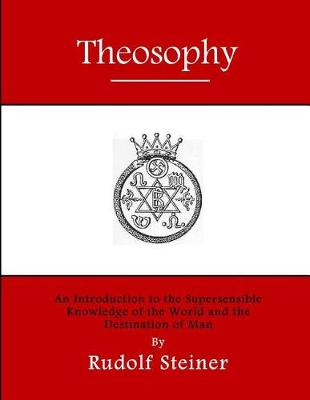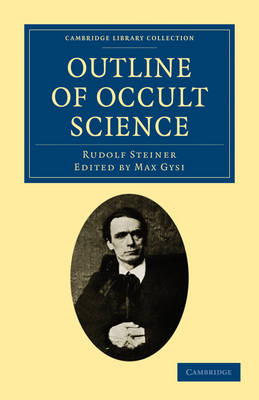Cambridge Library Collection - Spiritualism and Esoteric Knowledge
2 total works
Given his energetic involvement in practical initiatives and extensive lecturing, Rudolf Steiner had little time to write books. Of those he did write - belonging almost entirely to the earlier years of his work - four titles form an indispensable introduction to his later teaching: Knowledge of the Higher Worlds, Occult Science, The Philosophy of Freedom and Theosophy. Theosophy focuses on a psychology based not on the usual duality of body and mind, but on the more ancient division of body, soul and spirit. Steiner describes in detail the functions and organs of these three aspects of the human being, and the objective realms to which they belong. Just as the body derives from and belongs to the material world, so do the human soul and spirit belong to their own specific realms. These are the dimensions through which all human beings travel in the life after death, and in which - after passing the 'midnight hour' - we prepare to seek our destiny, or karma, in a new life. Theosophy features one of the most comprehensive and condensed of all Steiner's accounts of these realms, and of the experiences which our immortal being undergoes in passing through them.
The book ends with a chapter on the modern 'path of knowledge', in which Steiner describes the exercises through which every person may develop the latent powers of perception which are necessary for a knowledge of metaphysical worlds.
The book ends with a chapter on the modern 'path of knowledge', in which Steiner describes the exercises through which every person may develop the latent powers of perception which are necessary for a knowledge of metaphysical worlds.
Austrian philosopher, playwright, and artist Rudolf Steiner (1861-1925) is perhaps best known as an educational philosopher and reformer, the founder of Steiner (or Waldorf) schools located around the world. Steiner was an active member and leader of the German branch of Madame Blavatsky's Theosophical Society before forming his own Anthroposophical Society. His engagement with the occult stems from his work in theosophy and anthroposophy, philosophies invested in reaching and understanding the 'supersensible' world that relies on a cultivation of body, spirit, and soul. This anonymous translation of the fourth German edition was published by the Theosophical Publishing Society in 1914; the first edition was published in Germany in 1909. Steiner asserts in this work the necessary and intrinsic connection between what is possible through cognition with the power of the soul and the spirit. It will be of interest to scholars of spiritual philosophy, spiritual movements, and social psychology.

